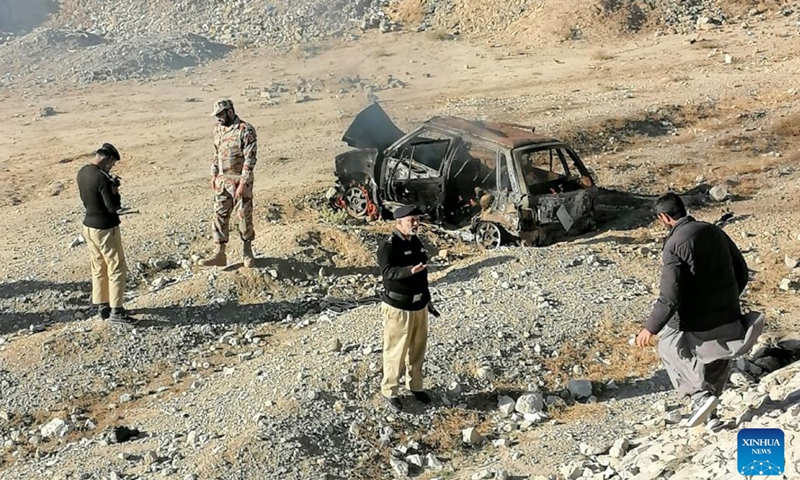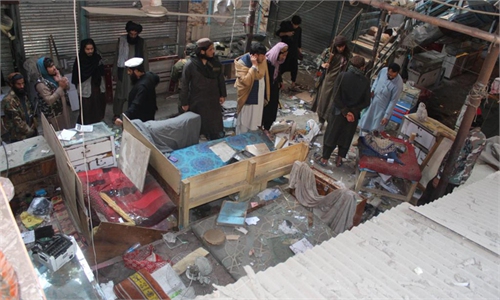Six Pakistanis, one Afghan soldier killed in cross-border clash

Security personnel examine a truck at a blast site in southwest Pakistan's Quetta on Nov. 30, 2022. A suicide blast hit a police truck on Wednesday in Quetta, the provincial capital of Pakistan's southwest Balochistan province, killing two people and leaving 24 others injured, a police official told Xinhua.(Photo: Xinhua)
Cross-border shelling and gunfire between Afghanistan and Pakistan killed six Pakistani civilians and one Afghan soldier on Sunday, officials on both sides of the frontier said, with each side accusing the other of starting the fighting.
The Pakistan army said Afghan border forces had opened "unprovoked and indiscriminate fire of heavy weapons including artillery/mortar on to the civilian population" at the Chaman border crossing, which links Pakistan's western Balochistan province with Afghanistan's southern Kandahar province.
Six civilians were killed and 17 wounded on the Pakistani side by Afghan fire, leading Pakistani troops to retaliate, the Pakistan military said in a statement.
Pakistani Prime Minister Shehbaz Sharif said the killings "deserve the strongest condemnation."
"The Afghan interim government should ensure that such incidents are not repeated," Sharif further said in a statement.
Haji Zahid, a spokesman for Kandahar's governor, said the fighting began after Pakistan objected to Afghan forces building a new checkpoint.
"They didn't want us to build these posts on our side of the border," he told Reuters, adding it led to a two-hour-long gun battle.
Kandahar police spokesman Hafiz Saber said one Afghan soldier was killed and 10 people, including three civilians, were wounded.
Afghanistan and Pakistan have for decades had territorial disputes at their border and the Chaman crossing was closed for several days after similar clashes in November.
Chaman is the second-largest commercial border point between the two countries after Torkham in Khyber Pakhtunkhwa. It is a vital source of customs revenue for the cash-strapped government in Afghanistan.
It was closed for weeks in October by Pakistani authorities due to security threats and disputes over issues ranging from COVID-19 to the validity of Afghan travel documents.
Reuters

